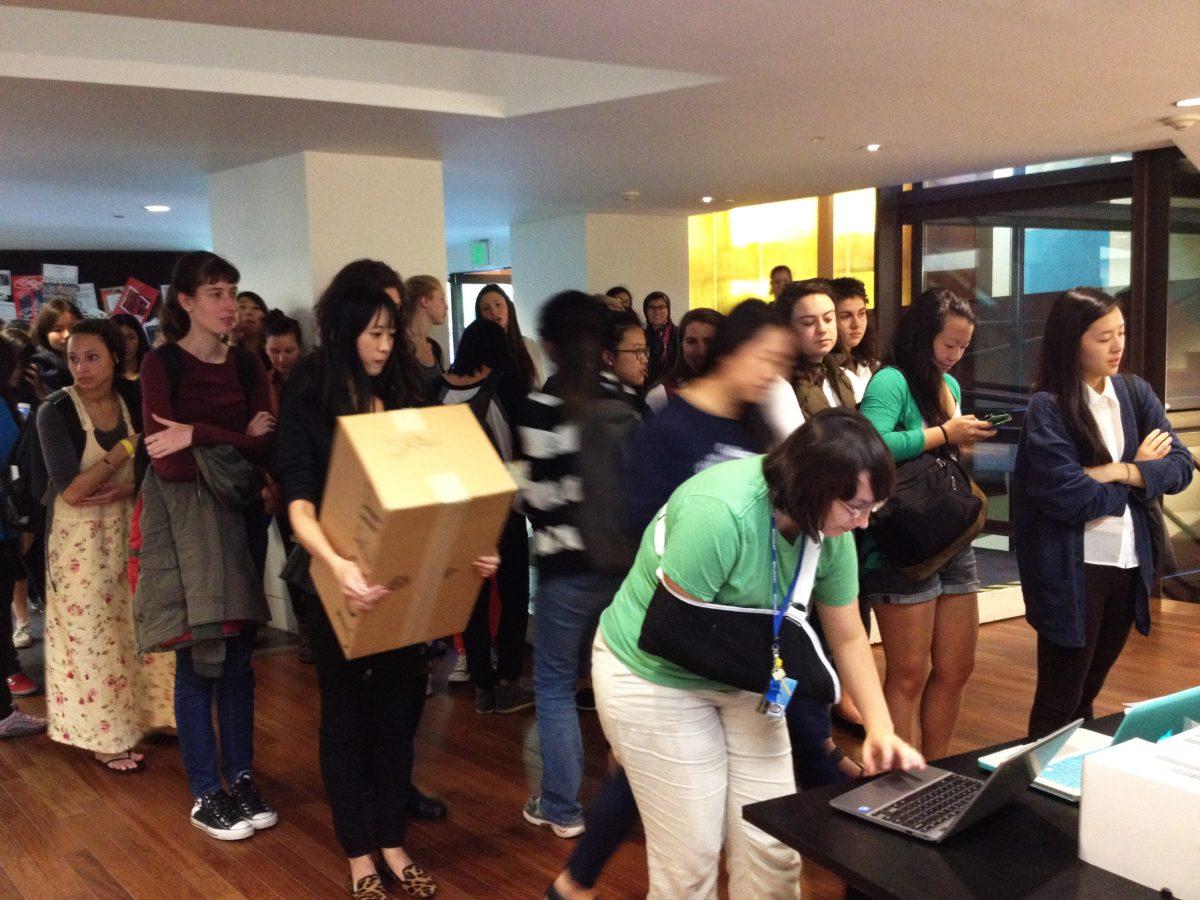Sonali Sastry ’15 doesn’t take no for an answer when it comes to getting women involved in technology. Decked out from top to bottom in the lighter version of the Wellesley blue and armed with Google “swag,” Sastry was dressed to inspire.
When I approached her information session table in the afternoon of Sept. 18, Sastry greeted me with a warm, crinkling smile, a firm handshake and a confident, friendly greeting. The table was crowded with laptops for mailing list registration, Google sunglasses, bags and lines of Wellesley students yearning to learn more about Google work opportunities.
Sonali Sastry is a computer science major. She was hired by Google this year to act as the Wellesley College Google Student Ambassador after being nominated and approved.
“My role is to act as a liaison between the school and the company,” Sastry said after giving students introductions to Google. “Basically, I want to get Wellesley students to become more aware of Google by hosting on-campus events such as hackathons and tech talks.”
When asked about the goals of Google at Wellesley as well as the motivation behind the student ambassador program, Sastry brought to light the problems facing women in technology.
“There is a large gap between tech companies and Wellesley students. For example, not a lot of tech companies are coming to Wellesley because I guess they don’t know about Wellesley,” Sastry said. “Google, however, is aware of Wellesley; they just didn’t come to Wellesley to recruit when I was a first-year. Though now we have companies like Square, Google and Microsoft coming here to recruit, I want more companies to come recruit, especially now when the number of computer science majors are increasing.”
This is especially true as now many technology companies are attempting to recruit from the Seven Sisters colleges.
Earlier this year, the Guardian reported that out of all the employees working in Google, 30 percent are female, with women filling only 17 percent of technical positions.
“I think that women with a liberal arts education are prepared to tackle problems in the tech world using different approaches,” Sastry commented as she looked for possible questions from the curious Wellesley students. “A student with a liberal arts education acquires important communication skills by taking courses in other disciplines.” Sastry emphasized the need for communication skills between engineers, product managers, investors and clients.
“Wellesley students also learn about a variety of unsolved problems by taking different classes. In learning these, Wellesley women have the skill of innovating solutions to these problems using software. So I think women with liberal arts backgrounds will be able to contribute more innovative ideas to tech companies because they have been exposed to different ideas and subjects,” Sastry said.
However, this does not mean that opportunities within tech companies are only open to women in technology. Technology companies are also open to students in fields such as business and design.
“Anyone can participate and apply to Google,” Sastry said, “There are so many positions available like sales and marketing.”
This year will be the first year in which Google will be officially recruiting students from Wellesley. The opportunities currently available are internships in technical positions.




